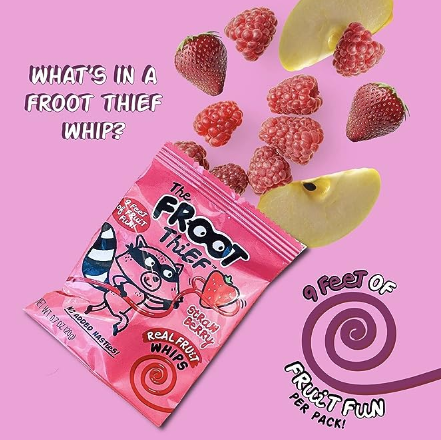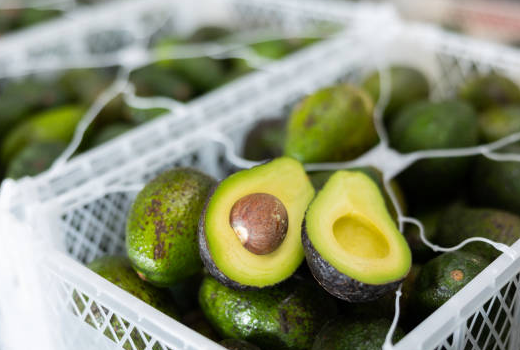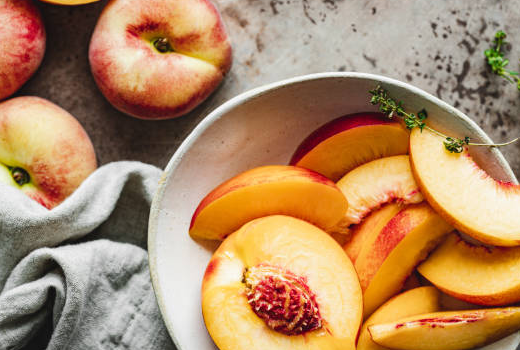Health Benefits of Raspberries

How to Cook Steak Using an Air Fryer
November 30, 2025
Tate’s Bake Shop Cookies: The Perfect Indulgence for Every Sweet Tooth
December 1, 2025Not only can raspberries be enjoyed all year round, but these brightly colored gemstones are also very delicious and versatile. Raspberries have an impressive nutrient profile, making them one of the healthiest options on the produce shelf.
Some of the benefits of raspberries include being high in nutrients, high in antioxidants, and low in sugar, helping to promote cognitive health, and preventing chronic disease.
Here are the top seven health benefits of raspberries and easy ways to include fresh and frozen foods in your meals and snacks.

Low Sugar Content
Raspberries are one of the fruits with the lowest sugar content. There are less than 2.7 grams of apples per 100-gram portion (about 3/4 of a cup), while small apples contain about 17 grams. The low sugar content makes them an excellent choice for those with a sweet tooth and want to minimize their total sugar intake.
Rich in Anti-Aging Antioxidants
Raspberries are antioxidants and are high in vitamin C.
One review noted that consuming more antioxidant-rich fruits, such as raspberries, may reduce the risk of chronic diseases such as cardiovascular disease and cancer.
Antioxidants are substances that may delay or prevent certain forms of cell damage. When you exercise, convert food into energy, or are exposed to cigarette smoke, air pollution, and sunlight, your body naturally produces free radicals, which are unstable molecules.
Too many free radicals can cause oxidative stress, which can trigger cell damage. Fortunately, some studies have found that antioxidant molecules can counteract oxidative stress.
Antioxidants may also help reduce inflammation, which is a known trigger for premature aging. The natural protective substances in raspberries can also reduce arthritis pain.
May Protect You From Cancer
The antioxidants and anti-inflammatory compounds in raspberries may help prevent cancer. Some evidence suggests that these compounds may reduce the reproduction of cancer cells.
One study noted that raspberries provide ellagitannin and anthocyanins. Ellagins and anthocyanins are phytochemicals that may have anti-cancer properties.

High Fiber Content
Raspberries are one of the most high-fiber natural food sources, providing 6.5 grams of fiber per 100 grams (about 3/4 of a cup).
Fiber has several health benefits, including:
- Contributes to enrichment
- Control your blood sugar
- Supports good digestive health
Raspberry fiber can also help beneficial gut bacteria multiply. This has a positive effect on people suffering from obesity, metabolic syndrome, and other chronic intestinal diseases.
May Help Prevent Diabetes
One study randomly assigned 32 adults between the ages of 20 and 60 to eat three breakfasts. The calories, fat, and carbohydrates are similar at each meal.
However, the frozen red raspberries they ate were served differently: one meal did not contain raspberries, the second meal contained one cup, and the third meal provided two cups.
Researchers have found that for those at risk of diabetes, eating more raspberries may lower blood sugar and reduce the amount of insulin needed to control blood sugar levels.
Improve Your Brain and Memory
Raspberries help fight oxidative stress, the imbalance between cell-damaging free radicals and the body’s ability to fight off its harmful effects.
Since oxidative stress is considered a risk factor for conditions like Alzheimer’s and Parkinson’s, raspberries are a top brain support food. One review noted that flavonoids in berries have been shown to help improve coordination and memory.
Nutrition of Raspberries
One cup (123 grams) of raspberries contains the following nutrients:
- Calories: 51–57kcal
- Fiber: 6.5 grams
- Vitamin C: 23 mg
- Manganese: 0.494mg

One cup of raspberries provides 32 mg of vitamin C. That’s about 43% of the recommended daily vitamin C target for women and 36% of the recommended daily vitamin C target for non-smokers. Vitamin C supports immunity and skin health, and helps produce collagen.
Raspberries also contain manganese, calcium, and vitamin K, which play an important role in bone health. In addition, raspberries provide small amounts of vitamin E, B vitamins, magnesium, copper, iron, and potassium.
Tips for Eating Raspberries
Raspberries are a beautiful and delicious condiment in many dishes and work well in both sweet and savory dishes. If you’re looking for a quick way to add raspberries to your daily meal or snack, try some of these recipes:
- Add them to oatmeal or overnight oats, garden salads, whole-grain garnishes, and desserts.
- Gently mash them into a colorful sauce that you can top on anything from two-ingredient banana egg pancakes to grilled fish or oven-baked vegetables.
- Whip frozen raspberries into a smoothie or thaw them like fresh raspberries and serve.
You can also heat frozen raspberries over low heat on the stovetop, adding freshly grated ginger root and cinnamon (and maybe a little pure maple syrup) as a base for a simulated shoemaker. Top with almond butter or oatmeal, chopped nuts, shredded coconut or dark chocolate chips.
Frozen, thawed, or fresh raspberries are also a great snack that can be served with nuts, pumpkin seeds, dark chocolate chunks, or topped with nut butter or spiced tahini.



